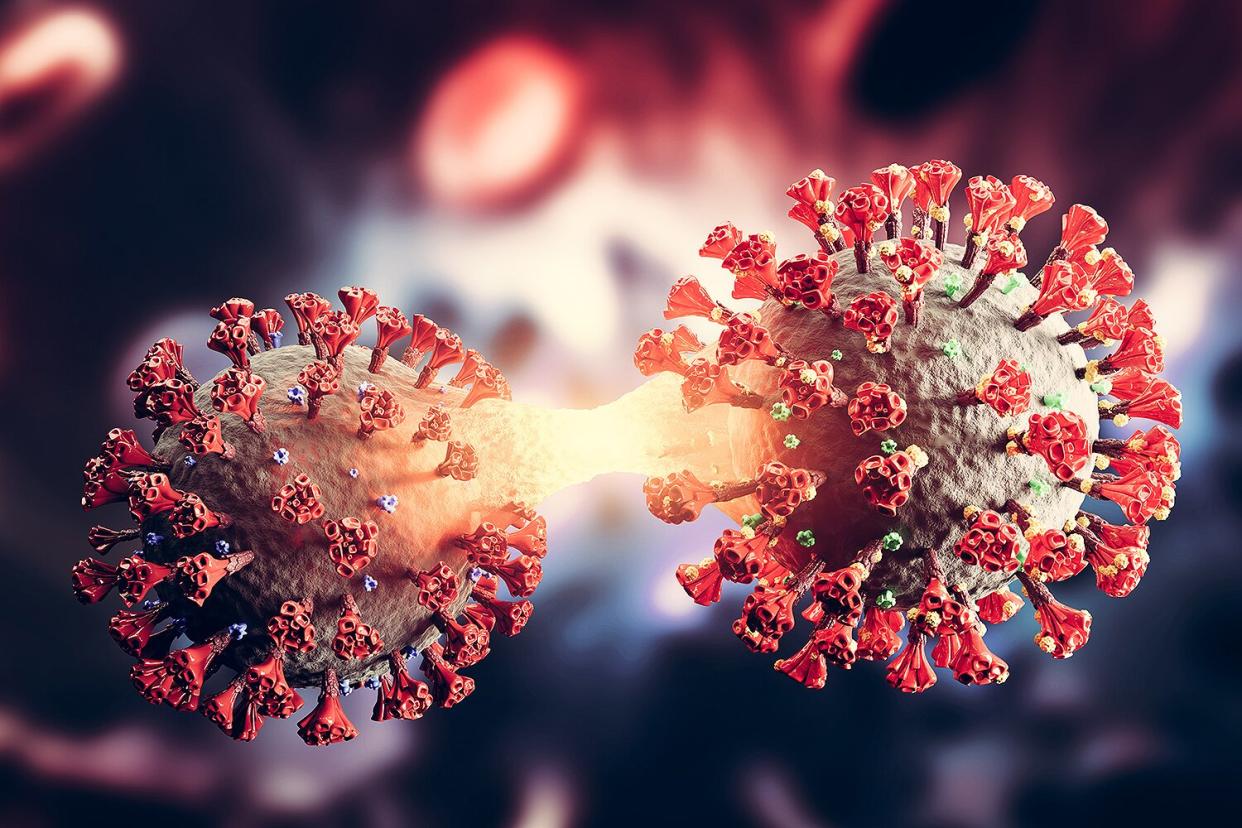New Omicron Subvariant B.A.2.12.1 Spreading Rapidly in the U.S.

- Oops!Something went wrong.Please try again later.
Getty COVID-19 new variant mutation
A new subvariant of omicron is now spreading rapidly in the U.S., and health experts say it will likely become the dominant strain of the virus in the country in upcoming weeks.
The subvariant, named B.A.2.12.1, is a new mutation of the highly contagious omicron COVID-19 variant. It was first detected in New York last month and made up 36% of all new cases in the United States in the week ending April 30, according to the Centers for Disease Control and Prevention.
Dr. Rochelle Walensky, director of the CDC, recently explained that though the subvariant is about 27% more contagious than the original form of omicron and more contagious than the last subvariant, BA.2, it doesn't cause a more severe case of COVID.
"Epidemiologically, it doesn't appear as if we're seeing more severe disease in places that are having more cases," she said. "So we are not anticipating more severe disease from some of these subvariants, but we are actively studying it."
RELATED VIDEO: Here are Some Myth-Busting Facts About Covid-19 Vaccines
Never miss a story — sign up for PEOPLE's free daily newsletter to stay up-to-date on the best of what PEOPLE has to offer, from juicy celebrity news to compelling human interest stories.
"We continue to believe that those who are vaccinated and especially those who are boosted continue to have strong protection against severe disease, even from BA.2.12.1," Walensky added.
Earlier this year, the CDC reported that a new omicron subvariant, BA.2, was spreading in the U.S. but said it was unlikely to cause significant problems as more Americans become vaccinated and boosted. Though cases started to go up, the number of hospitalizations and deaths remained stable.
"I'm relatively optimistic that, despite all of these changes in the virus, the vaccines will hold up," Jeremy Luban, virologist at UMass Chan Medical School, told NPR. "So people who have been vaccinated and boosted are not going to be hospitalized, by and large, unless there's some extenuating circumstances."
As of April 30, the BA.2 subvariant still makes up the majority of U.S. cases at 62%, but BA.2.12.1 is rapidly overtaking it, and cases with the subvariant jumped from 27% to 36% in a week, according to the CDC.
As information about the coronavirus pandemic rapidly changes, PEOPLE is committed to providing the most recent data in our coverage. Some of the information in this story may have changed after publication. For the latest on COVID-19, readers are encouraged to use online resources from the CDC, WHO and local public health departments. PEOPLE has partnered with GoFundMe to raise money for the COVID-19 Relief Fund, a GoFundMe.org fundraiser to support everything from frontline responders to families in need, as well as organizations helping communities. For more information or to donate, click here.

